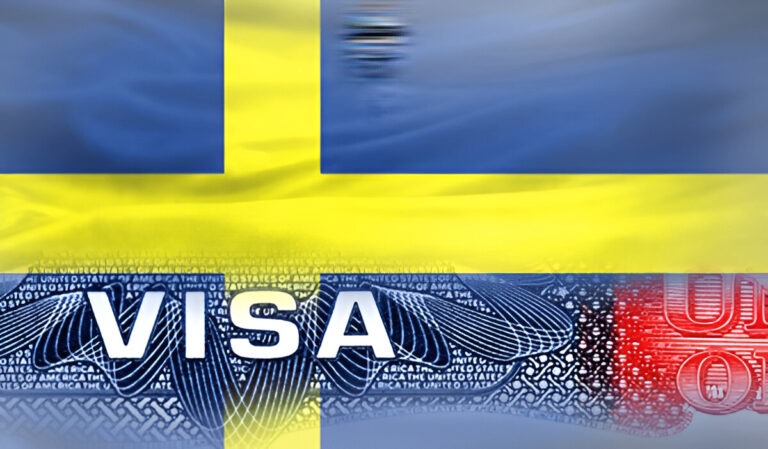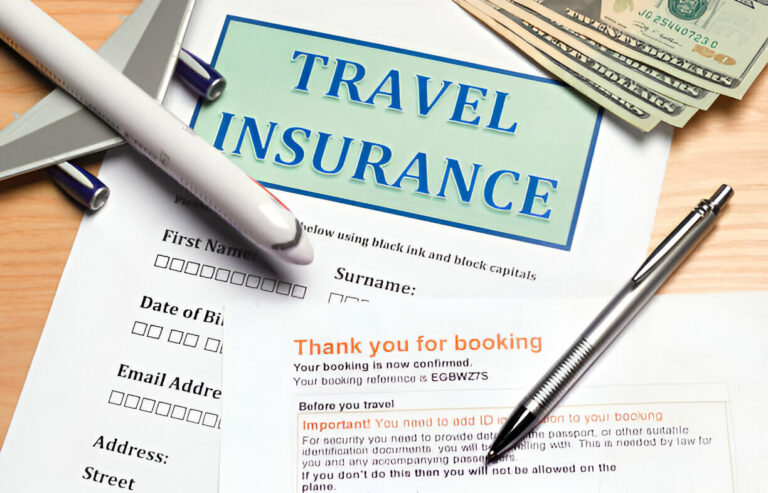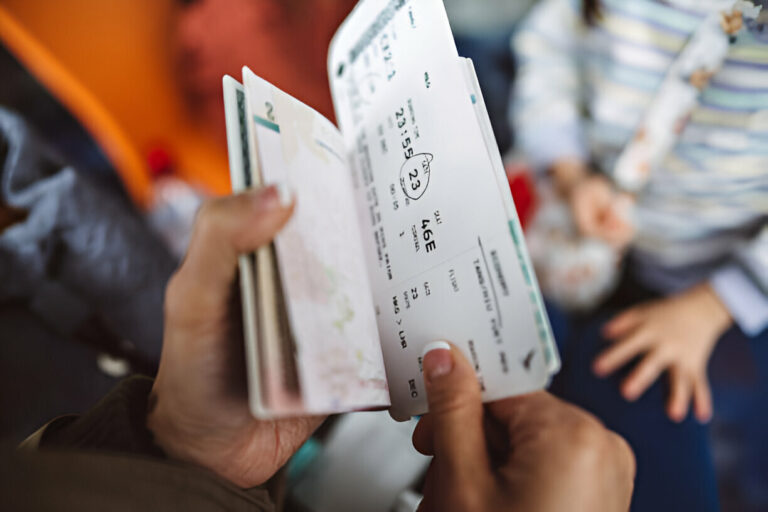South Korea Spouse Visa for Immigrants – Visa Sponsorship in South Korea
Embarking on a journey to South Korea to join your spouse is a significant and heartfelt decision. Whether you are planning to reunite with your partner, start a new life together, or support each other’s careers, securing the right visa is essential for a smooth transition.
The South Korea Spouse Visa (F-6 Visa) allows foreign nationals married to South Korean citizens or permanent residents to reside legally in South Korea. This visa not only facilitates family reunification but also provides various benefits, including the ability to work, study, and access to social services.
Types of Spouse Visas
While the F-6 Visa is the primary spouse visa, South Korea offers variations to accommodate different circumstances. Understanding these types can help you choose the most suitable option for your situation.
1. F-6 Visa (Marriage Migrant)
- Purpose: For foreign nationals married to South Korean citizens or permanent residents.
- Eligibility: Requires proof of a genuine marital relationship and meeting financial and legal requirements.
- Benefits: Work authorization, access to social services, and a pathway to permanent residency.
2. F-6-1 Visa (Marriage Migrant with Dependents)
- Purpose: For spouses with dependents, such as children.
- Eligibility: Similar to the F-6 Visa but includes additional documentation for dependents.
- Benefits: Extends the benefits of the F-6 Visa to family members.
3. F-6-2 Visa (Long-term Marriage Migrant)
- Purpose: For spouses who have been married for an extended period.
- Eligibility: Typically requires a longer duration of marriage and stable financial status.
- Benefits: Enhanced stability and easier renewal process.
Eligibility Criteria for the Spouse Visa
Meeting the eligibility criteria is crucial for a successful visa application. Below are the general and specific requirements for obtaining a South Korea Spouse Visa.
General Requirements
- Valid Passport: Your passport must be valid for at least six months beyond your intended stay in South Korea.
- Completed Application Form: Accurately filled out visa application form, obtainable from the South Korean embassy or consulate.
- Photograph: Recent passport-sized photograph adhering to South Korean visa photo specifications.
- Marriage Certificate: Official marriage certificate registered with the relevant authorities in your home country and, if necessary, translated into Korean or English.
- Proof of Relationship: Evidence of a genuine marital relationship, such as joint bank accounts, photos, communication records, and affidavits.
- Financial Proof: Evidence that your spouse in South Korea can financially support you, such as bank statements, employment contracts, or tax returns.
- Health Insurance: Proof of health insurance coverage for the duration of your stay.
- No Criminal Record: Police clearance certificate may be required to prove a clean criminal history.
- Visa Sponsorship: Documentation from your South Korean spouse acting as your sponsor.
What is Visa Sponsorship?
Visa sponsorship involves a South Korean entity or individual acting as a guarantor for the visa applicant. In the context of the Spouse Visa, the sponsor is typically the South Korean spouse. The sponsor’s role is to provide financial support, documentation, and assurance that the applicant will comply with visa regulations.
Types of Sponsors
- South Korean Citizens:
- Spouses: The primary sponsor for the F-6 Visa.
- Responsibilities: Provide necessary documentation, financial support, and ensure the visa holder complies with visa conditions.
- Permanent Residents:
- Spouses: Foreign spouses of permanent residents can also sponsor visa applications.
- Responsibilities: Similar to sponsors who are South Korean citizens, ensuring financial stability and compliance.
- Organizations:
- In Specific Cases: Certain visa categories may require sponsorship from recognized organizations or government bodies, though this is less common for spouse visas.
Responsibilities of Sponsors
- Providing Documentation:
- Employment Proof: Demonstrate stable employment to support the visa holder financially.
- Residence Proof: Show adequate living arrangements for the visa holder.
- Financial Support: Ensure that the visa holder has sufficient funds and will not become a public burden.
- Compliance with Regulations:
- Legal Obligations: Ensure that the visa holder adheres to South Korean laws and visa conditions.
- Support Services: Offer assistance in case of emergencies or changes in circumstances.
- Communication:
- Point of Contact: Act as the primary liaison between the visa holder and South Korean immigration authorities.
- Information Sharing: Keep the visa holder informed about any updates or changes in visa regulations.
Benefits of Having a Sponsor
- Increased Approval Chances: Sponsorship by a reputable individual or entity enhances the credibility of your visa application.
- Support System: Access to resources and support from your sponsor can ease your transition into South Korean society.
- Facilitated Process: Sponsors help navigate the complexities of the visa application process, ensuring all requirements are met efficiently.
Step-by-Step Application Process
Securing a South Korea Spouse Visa involves several steps, each requiring careful attention to detail to ensure a successful application.
Step 1: Prepare Your Documents
- Gather Necessary Documents: Collect all required documents, including your passport, marriage certificate, financial proof, and sponsorship documents.
- Translate Documents: Ensure that all non-Korean documents are translated into Korean or English by a certified translator.
- Notarize Documents: Some documents may need to be notarized to verify their authenticity.
Step 2: Complete the Visa Application Form
- Accurate Information: Fill out the visa application form accurately, ensuring that all information matches your supporting documents.
- Consistency: Avoid discrepancies between the application form and supporting documents to prevent delays or rejections.
Step 3: Submit the Application
- Where to Submit: Submit your application at the nearest South Korean embassy or consulate in your home country.
- Submission Methods: Some visa categories may allow for online submission through official South Korean visa portals.
- Appointment Booking: Schedule an appointment if required, and ensure you arrive on time with all necessary documents.
Step 4: Pay the Visa Fee
- Fee Structure: Visa fees vary based on the visa category and processing speed. Check the specific fee requirements with the embassy or consulate.
- Payment Methods: Pay the fee through the accepted methods, such as bank transfers, credit cards, or cash, as specified by the embassy.
Step 5: Attend an Interview (If Required)
- Preparation: Be prepared to discuss your relationship, your plans in South Korea, and your financial stability.
- Documentation: Bring all necessary documents to the interview, including originals and copies of your supporting documents.
Step 6: Wait for Processing
- Processing Time: The processing time for a South Korea Spouse Visa typically ranges from 4 to 8 weeks, depending on the visa category and the volume of applications.
- Tracking: Track your application status through the embassy or consulate’s online portal or contact center.
Step 7: Receive Your Visa
- Approval: Once approved, your visa will be stamped on your passport.
- Verification: Ensure that all details on the visa are correct, including your name, visa type, and validity dates.
Step 8: Plan Your Travel
- Travel Arrangements: Book your flights and arrange for transportation to South Korea.
- Accommodation: Secure accommodation in South Korea, whether it’s temporary housing upon arrival or a long-term rental.
- Entry Requirements: Comply with any additional entry requirements, such as health checks or quarantine measures, if applicable.
Common Mistakes to Avoid
Avoiding common pitfalls can significantly enhance your chances of a successful visa application. Here are some mistakes to watch out for:
1. Incomplete Documentation
- Comprehensive Checklist: Use a detailed checklist to ensure that all required documents are submitted.
- Double-Check: Verify that all documents are complete, accurate, and properly translated.
2. Inaccurate Information
- Consistency: Ensure that all information provided in the application form matches your supporting documents.
- Honesty: Provide truthful and accurate information to avoid raising red flags.
3. Missing Deadlines
- Early Application: Start the application process well in advance of your intended travel date to account for processing times and potential delays.
- Timely Submission: Submit your application and all required documents by the specified deadlines.
4. Underestimating Financial Requirements
- Accurate Assessment: Assess your financial needs based on living costs, tuition (if applicable), and other expenses.
- Comprehensive Proof: Provide thorough evidence of financial stability, including bank statements, employment contracts, or scholarship letters.
5. Ignoring Language Proficiency
- Meeting Requirements: Ensure you meet any language proficiency requirements for your visa category.
- Preparation: Prepare for and pass necessary language tests, such as TOPIK (Test of Proficiency in Korean), if required.
6. Not Understanding Visa Conditions
- Familiarization: Understand the terms and conditions of your visa, including permitted activities and restrictions.
- Compliance: Adhere to all visa conditions to avoid penalties or deportation.
7. Assuming All Visa Categories Are the Same
- Specific Requirements: Different visa categories have distinct requirements and benefits. Ensure you are applying for the correct visa type that aligns with your circumstances.
- Tailored Applications: Customize your application based on the specific visa category to enhance your chances of approval.
The Role of Visa Agencies and Lawyers
Navigating the South Korean visa application process can be complex, and professional assistance can significantly enhance your chances of success. Here’s how visa agencies and immigration lawyers can help:
1. Expert Guidance
- Knowledge: Visa agencies and immigration lawyers possess in-depth knowledge of South Korean immigration laws and procedures.
- Tailored Advice: They can provide tailored advice based on your specific circumstances, ensuring that your application aligns with all requirements.
2. Document Preparation
- Accuracy: Professionals assist in preparing and organizing the necessary documentation, reducing the risk of errors or omissions that could delay or derail your application.
- Translations: They can facilitate accurate translations of your documents, ensuring they meet South Korean standards.
3. Application Management
- Handling Submissions: Visa agencies manage the entire application process on your behalf, from submission to follow-up, ensuring that all steps are completed efficiently and accurately.
- Tracking Progress: They monitor the status of your application and provide updates, keeping you informed throughout the process.
4. Interview Preparation
- Coaching: If an interview is required, lawyers and visa agents can provide coaching and preparation to help you present your case effectively.
- Mock Interviews: They may conduct mock interviews to help you practice and build confidence.
5. Appeals and Reapplications
- Addressing Denials: In case of application rejection, immigration lawyers can assist with filing appeals or reapplications, addressing the reasons for denial and strengthening your case.
- Legal Representation: They can represent you in legal proceedings, ensuring that your rights are protected.
Conclusion
Securing the right South Korea Spouse Visa is a crucial step in ensuring a smooth and successful transition to life in South Korea. Remember to avoid common mistakes, seek professional assistance when needed, and stay informed about policy changes to maximize your chances of a successful visa application.
With thorough preparation and the right support, you can confidently embrace your new life in South Korea, knowing that your legal and immigration needs are well-managed.




